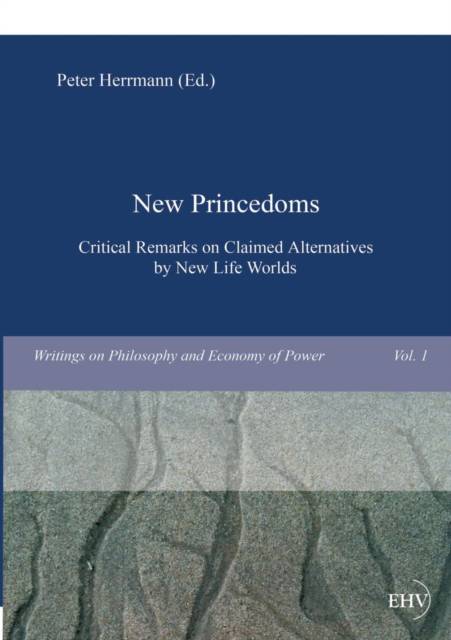
Je cadeautjes zeker op tijd in huis hebben voor de feestdagen? Kom langs in onze winkels en vind het perfecte geschenk!
- Afhalen na 1 uur in een winkel met voorraad
- Gratis thuislevering in België vanaf € 30
- Ruim aanbod met 7 miljoen producten
Je cadeautjes zeker op tijd in huis hebben voor de feestdagen? Kom langs in onze winkels en vind het perfecte geschenk!
- Afhalen na 1 uur in een winkel met voorraad
- Gratis thuislevering in België vanaf € 30
- Ruim aanbod met 7 miljoen producten
Zoeken
World's New Princedoms
Critical Remarks on Claimed Alternatives by New Life
€ 53,45
+ 106 punten
Omschrijving
This book gathered contributions by the editor, Peter Herrmann, and Wendy Earles and Brigitte Kratzwald. Rather than looking in a specialist perspective at different aspects of current social analysis, it aims to provide a transverse insight into issues of a new world order. Economic and political changes are seen as interwoven in such a way that they mark a system shift. Although catchy terms as re-feudalisation are tempting, they need to be developed in a historical analysis that brings economic and political shifts comprehensively together. The present book, one of three volumes 'Writings on Philosophy and Economy of Power', does not claim to be conclusive. However it presents the view on some core issues. The fundamental view is that we find a shift in the understanding of political regulation that is grounded in a change of the economic formation. However, rather than focusing on the thesis of a simple 'take over' by capitalism or neo-liberalism it is suggested that such development actually means that development is to a large extent actually shifting away from capitalism. Its basic structures, determined by economic laws, are replaced by politically dominated mechanisms of control and steering. As much as feudal structures had been pre-capitalist in their character, we are now facing a post-capitalist feudalism.
Specificaties
Betrokkenen
- Uitgeverij:
Inhoud
- Aantal bladzijden:
- 200
- Taal:
- Engels
- Reeks:
Eigenschappen
- Productcode (EAN):
- 9783867418126
- Verschijningsdatum:
- 30/11/2012
- Uitvoering:
- Paperback
- Afmetingen:
- 149 mm x 212 mm
- Gewicht:
- 406 g

Alleen bij Standaard Boekhandel
+ 106 punten op je klantenkaart van Standaard Boekhandel
Beoordelingen
We publiceren alleen reviews die voldoen aan de voorwaarden voor reviews. Bekijk onze voorwaarden voor reviews.








